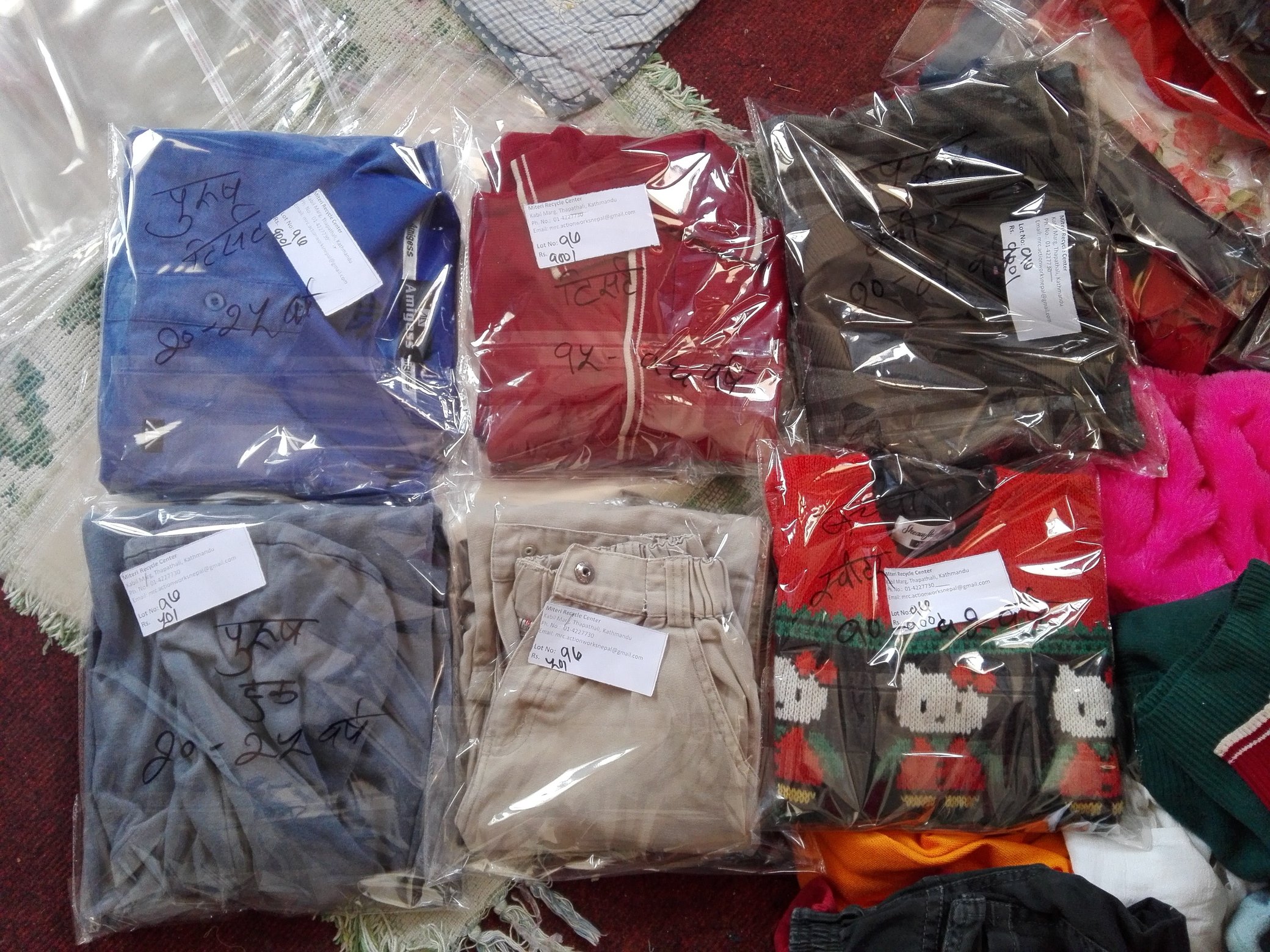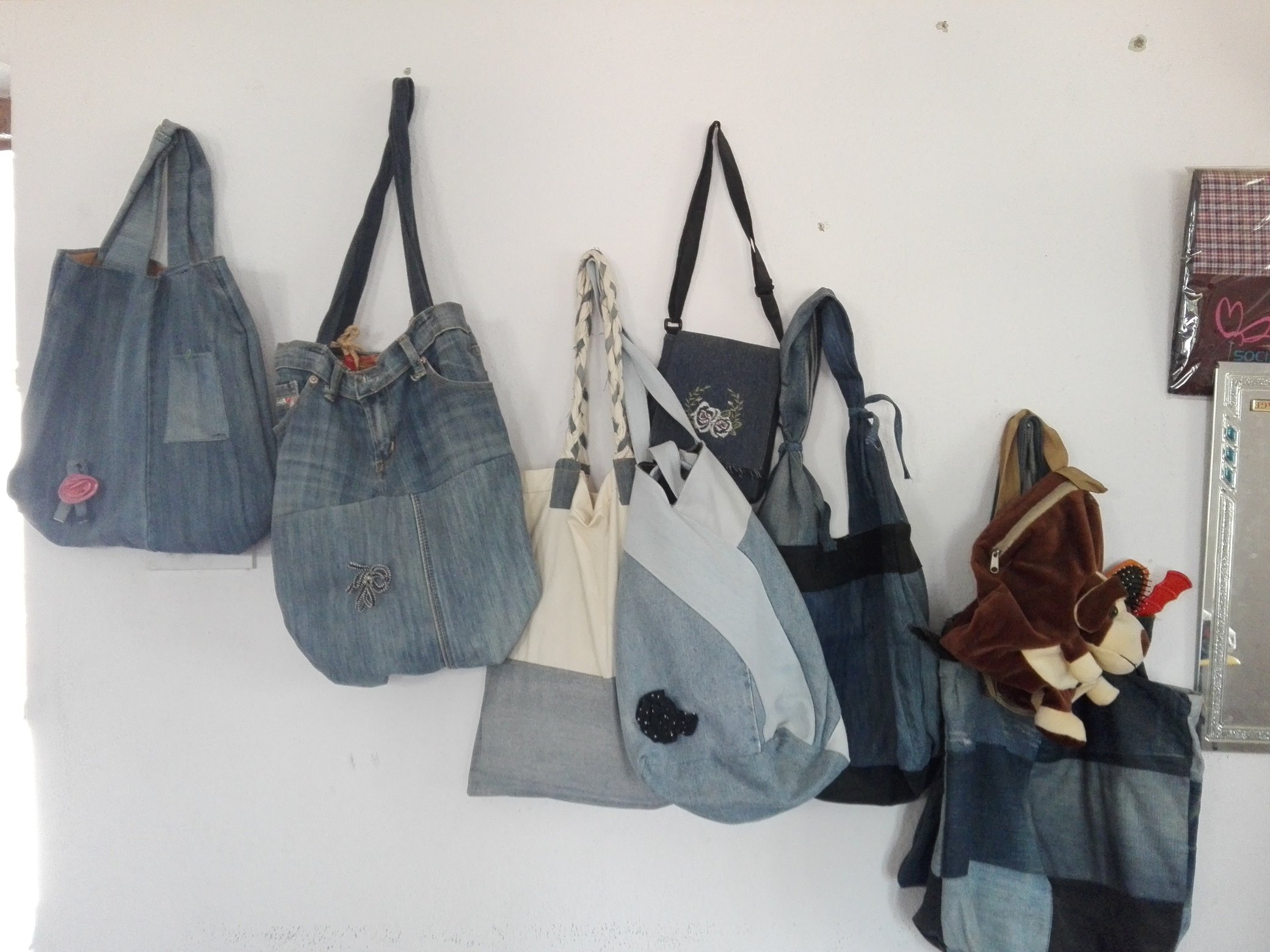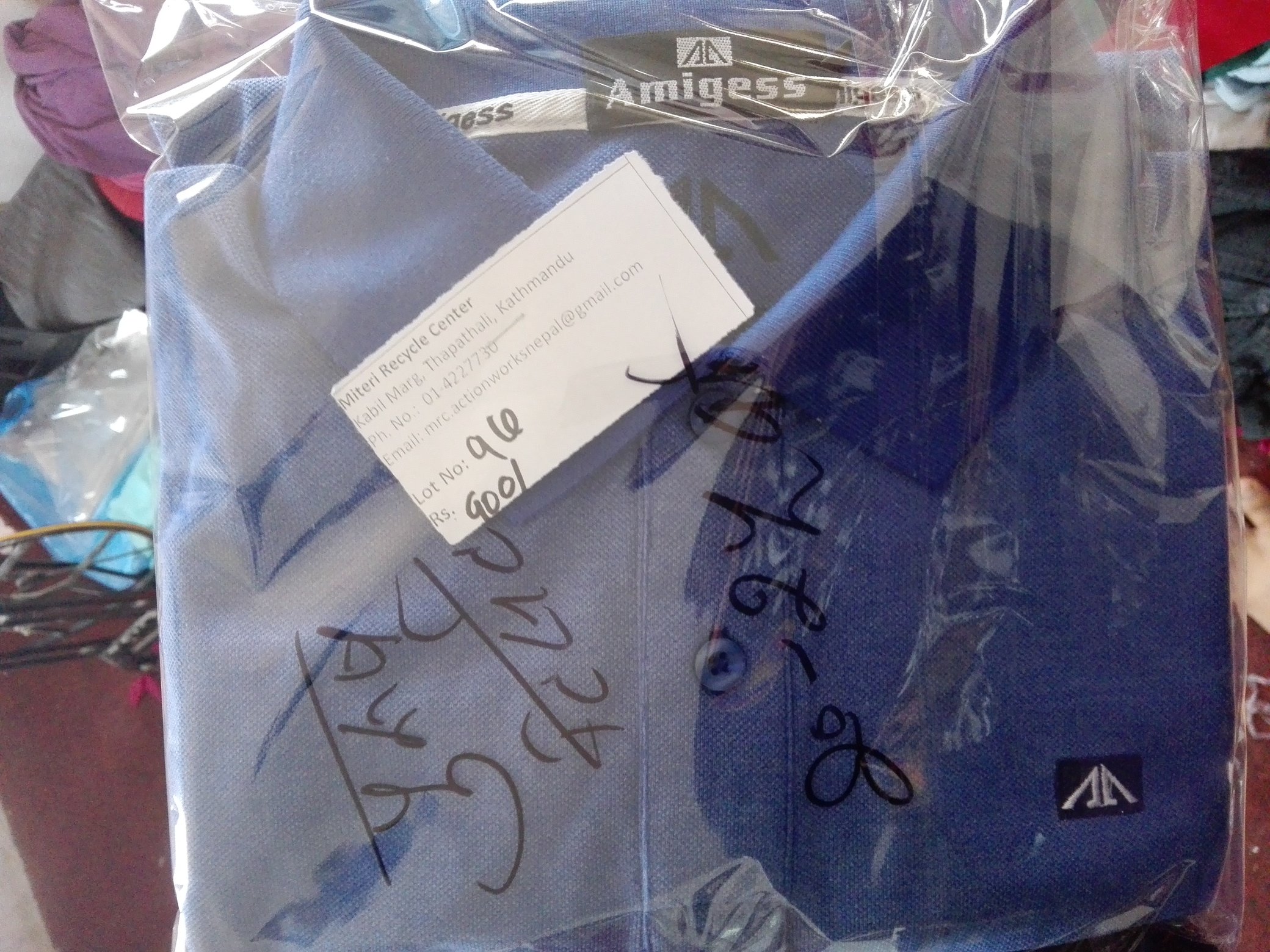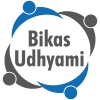Social Entrepreneurship BLOG Series- Issue No. 1
Miteri Recycle: Between Social Service and Business
Think about the clothes you have at home that you have worn only once or twice, because they do not fit you properly anymore or you have grown tired of them. You think of wearing them one day, but you never do. You are thinking of throwing them away or donating them to the poor people outside holy shrines like Pashupatinath. But did you know that your used clothes could be the best buy for people in rural areas in western Nepal?
Miteri Recycle Nepal is a social business initiative established in 2010, which provides affordable clothes to needy people in the remote areas of Nepal. It collects uses, but wearable clothes from people like you. After washing and ironing, it packs them and sells these to rural people at an affordable price. Proceeds from the sales are used to cover the cost of processing, transportation and the volunteers who sell the clothes. Bikas Udhyami sat down with Shova Chalise in charge of Miteri Recycling Center to talk about the company’s story.
How did the Miteri’s clothes recycling initiative start?
Our founder and president, Radha Paudel, is a nurse who was stationed in Jumla during her government service. Seeing the people suffer from extreme cold due to not being able to afford clothes, she wanted to do something for them. Once she encountered a woman, who was shaking because of the extreme cold. She offered the woman her warm jacket, which she accepted happily. Radha asked her if she would be willing accept more used clothes again in the future, which the woman affirmed. This sparked her idea to establish Miteri. Now it has become an example initiative with one full time and 5-6 part time female staff members.
How is your business creating social impact?
We focus on the rural areas of western Nepal, targeting people who live in extreme poverty especially children and women. It may sound unimaginable, but many children in the rural areas in Western Nepal in which we work were not able go to school because their families could not afford to buy clothes for them. In addition, people in these areas have to walk very far to be able to buy good quality clothes. Our distribution is helping them to find a way and so far we have been able to provide clothes to 20 villages. In addition, we also employ disadvantaged women including single and Dalit women as part of our recycling and repacking work. Though part time, it gives opportunities for them to learn new skills and apply these. In the Western region, the practice of Chaupadi whereby a girl is forced stay outside the housing during her menstruation is quite widespread still and sanitary pads are difficult to get. Many women have got good tailoring skills, so we engage them by teaching them how to make sanitary pads using the old clothes that we collect after washing them. The women can produce these from home, sell them within their rural villages and earn a small income. By doing so, in the areas in which we work, we have seen a positive impact in terms of reducing the practice of Chaupadi. Furthermore, we also operate a Birthing Center and Child Learning Center in two districts Jumla and Kavre. This is how our work combines conventional social work and business.
How is this initiative different to those of other organizations?
There are several other initiatives that donate clothes, which provide assistance like this for free. We also did this during our early days, but it brought inequality in the distribution. When the clothes were given for free, people were taking everything they could get and some of the clothes even went unused because of a mismatch in size. Then we got a new idea to package and tag the price, sex and age group to every clothing item we distributed. Now, people have to pay a minimal price for the clothing item they want. The proceeds are helping us to sustain this initiative and while we do not make a profit, we can cover our operation costs from it. In addition, out of the proceeds made through sales, ten percent goes to the volunteers, who visit different villages to sell the items or from our stalls that we set up in local towns in the west to sell the clothes. We do not only sell second hand clothes, we also make bags and dolls from clothing items like jeans and sell them at different colleges in Kathmandu that we visit or sometimes people come to our office to buy them directly.



How do you see the environment for young people to establish a social business in Nepal?
It is still tough. People are not so familiar with novel concepts such as recycling clothes and it takes time for people to change their perception. Other innovative businesses may experience the same. We are not completely operating as a business either, but are an initiative based on a business model. I think all initiatives should have a business orientation, so that they does not have to operate only on donor funds but can sustain itself.
What are your key successes and main challenges?
The fact that after 6 years, we are still continuing the recycling initiative is especially noteworthy for us. We have sold our clothes in most of the remote areas in 7 districts like Jumla, Humla, Kalikot, Dailekh etc. Not only this, we empowered them to start their own business as Miteri Cloth retailers. They are doing well now.
Apart from this, we are changing the perception of clothes donation. In the past, people used to donate any kind of clothes without washing. But once we show them what kind of clothes can be reused and how we pack them, now they are self-aware. We have some donors now who donate us directly ready to package clothes by washing and ironing them properly.
One of the major challenges for us is still how to cover our transportation costs. We cannot put a high price on clothes, so the proceeds hardly cover the cost of transportation. We have requested government and private transportation, but did not get any support. Also finding committed volunteers to go to the rural villages for a long time is hard. Furthermore, the sizing of the clothes we sell also presents a challenge. A medium size in Kathmandu constitutes extra-large for most people in the areas where we work. Therefore, we have to resize the clothes before packing them, which also consumes extra time and cost.
What kind of recommendations do you have you for other aspiring social entrepreneurs?
It is always challenging to convert innovative ideas into practice. If anyone is in the process to start some never done before initiative or business, they need to accept the fact that the customers or the targeted group naturally could be unknown to them. Making them understand what you are doing is important. Once they become habitual, it becomes easy thereafter.
If you are inspired by Miteri's work and want to donate your washed clothes, please contact Miteri Recycling Center:
Miteri Recycling Center
Thapathali
Kathmandu website: http://miterirecyclecenter.wixsite.com/awon
Facebook: https://goo.gl/WM7Fu4
